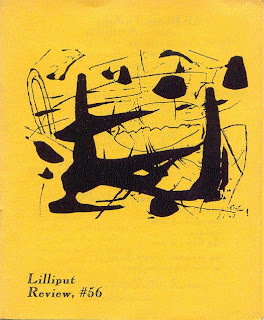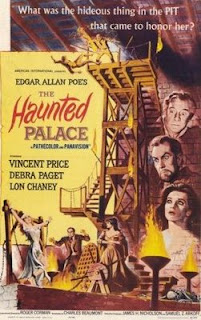Today is Richard Brautigan's birthday and he is a sentimental favorite around here, as many of you know. I thought to celebrate, I'd highlight some poems from his collection Rommel Drives On Deep Into Egypt.
It appears that I've already posted "Feasting and Drinking Went on Far into the Night," not once but twice, so I'll just give you the link and leave sparing the redundancy up to you (of course reading a good poem over and over, in this case spaced months apart, is highly recommended, as you'll find it's changed - or was that you?). Let's see what else I can roust up:
Always spend a penny
as if you were spending
-----dollar
and always spend a dollar
as if you were spending
a wounded eagle and always
spend a wounded eagle as if
you were spending the very
-----sky itself.
A Lyrical Want, an Endocrine Gland Fantasy
A lyrical want, an endocrine gland fantasy,
a telescope that I thought had no thorns
have lead me to a pain that I cannot pronounce.
It gathers around me like a convention of translators
for a language that does not exist with all those meetings
-----to attend.
All Secrets of Past Tense Have Just Come My Way
All secrets of past tense have just come my way,
but I still don't know what I'm going to do
----next.
Snow Makes Me Sad
Flying East today first to Chicago,
then North Carolina snow makes me sad
below in the mountains of the West.
It is a white sadness that rises
from California, Nevada, Utah
and Colorado to visit the airplane,
to sit here beside me like a snowy 1943
-----map of my childhood.
At first, it was Mr. B's playfulness with a medium that was always so Serious that appealed to the flower generation (Auden and Lowell in the rear view, by the side of the road, each with a battered bag and a bemused expression), followed so very closely by his sadness. And, yes, tragedy.
Messy, indeed.
It is that sadness that lingers for those of us who loved him. Still it is the subtle blend of whimsy, sadness, and, yes, seriousness (for can there be sadness without the serious) that made him truly great.
What say we swing on back and pick up those those two old geezers, lonely, sad, serious and, if truth be told, even a bit playful, shuffling along there, by the side of the road?
Nice to see you smiling, Mr. B.
best,
Don







































